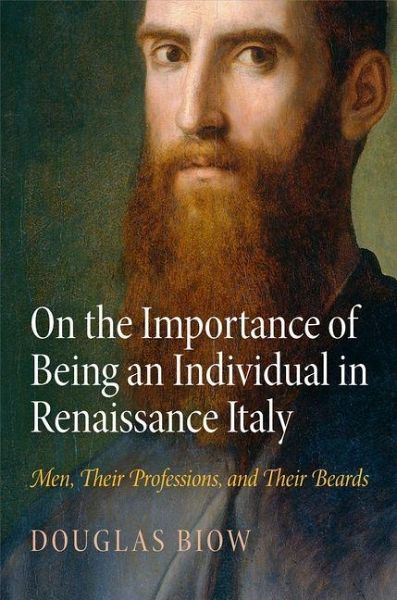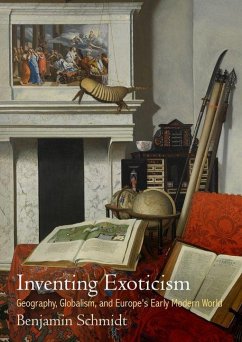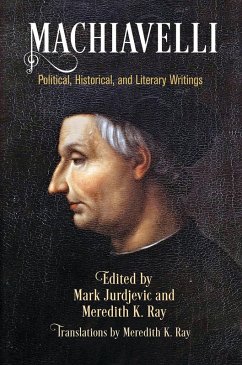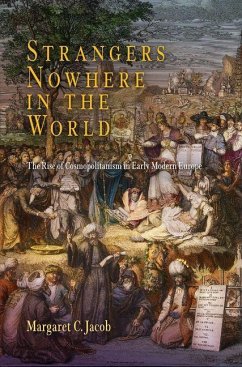
On the Importance of Being an Individual in Renaissance Italy (eBook, ePUB)
Men, Their Professions, and Their Beards

PAYBACK Punkte
28 °P sammeln!
In recent decades, scholars have vigorously revised Jacob Burckhardt's notion that the free, untrammeled, and essentially modern Western individual emerged in Renaissance Italy. Douglas Biow does not deny the strong cultural and historical constraints that placed limits on identity formation in the early modern period. Still, as he contends in this witty, reflective, and generously illustrated book, the category of the individual was important and highly complex for a variety of men in this particular time and place, for both those who belonged to the elite and those who aspired to be part of ...
In recent decades, scholars have vigorously revised Jacob Burckhardt's notion that the free, untrammeled, and essentially modern Western individual emerged in Renaissance Italy. Douglas Biow does not deny the strong cultural and historical constraints that placed limits on identity formation in the early modern period. Still, as he contends in this witty, reflective, and generously illustrated book, the category of the individual was important and highly complex for a variety of men in this particular time and place, for both those who belonged to the elite and those who aspired to be part of it. Biow explores the individual in light of early modern Italy's new patronage systems, educational programs, and work opportunities in the context of an increased investment in professionalization, the changing status of artisans and artists, and shifting attitudes about the ideology of work, fashion, and etiquette. He turns his attention to figures familiar (Benvenuto Cellini, Baldassare Castiglione, Niccolò Machiavelli, Jacopo Tintoretto, Giorgio Vasari) and somewhat less so (the surgeon-physician Leonardo Fioravanti, the metallurgist Vannoccio Biringuccio). One could excel as an individual, he demonstrates, by possessing an indefinable nescio quid, by acquiring, theorizing, and putting into practice a distinct body of professional knowledge, or by displaying the exclusively male adornment of impressively designed facial hair. Focusing on these and other matters, he reveals how we significantly impoverish our understanding of the past if we dismiss the notion of the individual from our narratives of the Italian and the broader European Renaissance.
Dieser Download kann aus rechtlichen Gründen nur mit Rechnungsadresse in A, D ausgeliefert werden.













